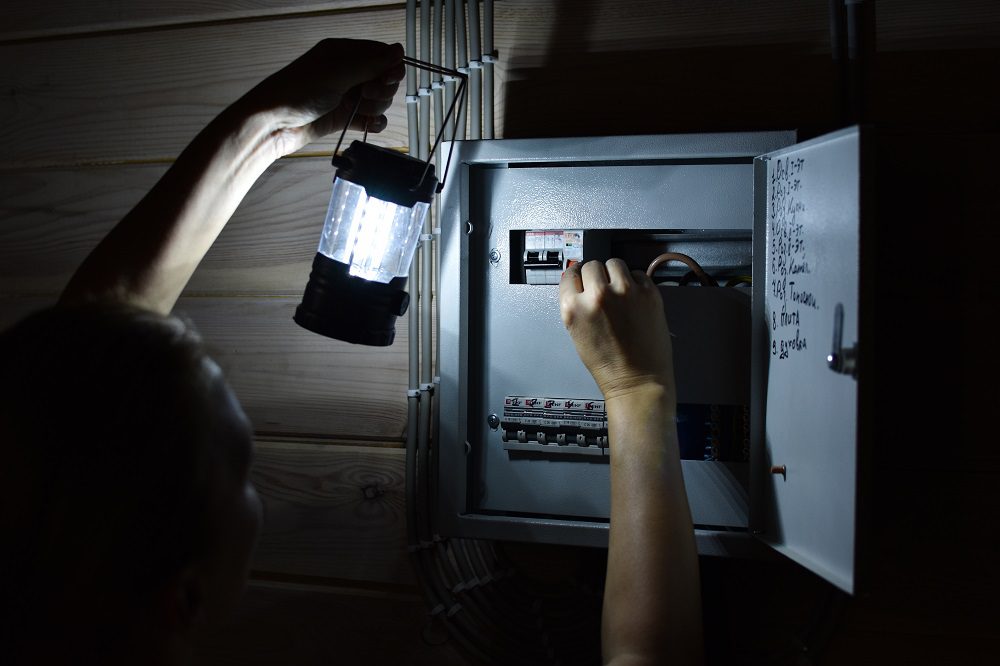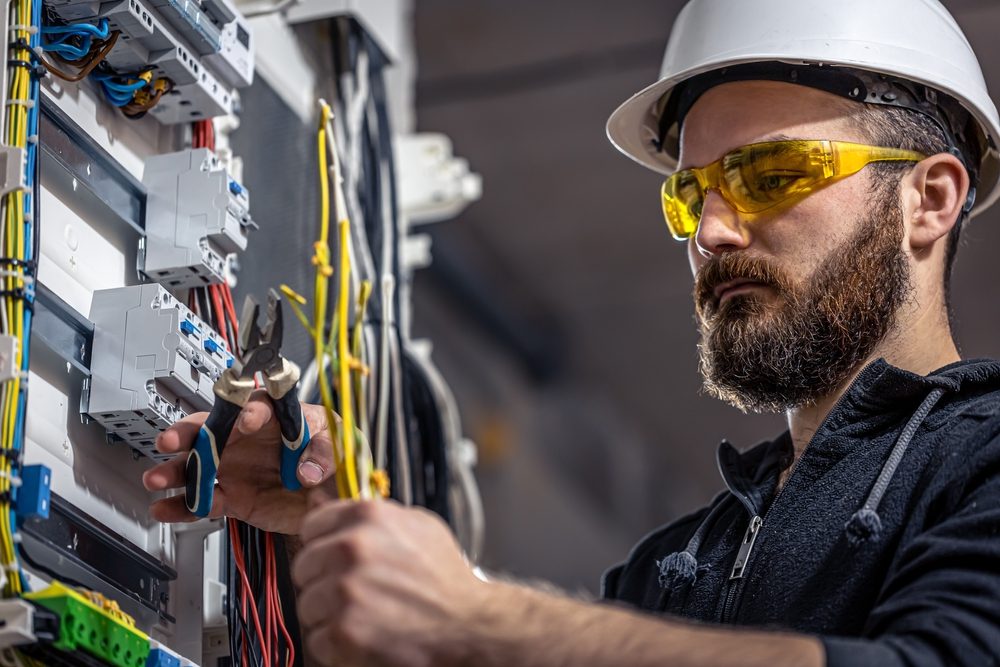Charlotte homes built before the 1990s often run on wiring that never expected a double oven, a Peloton, a tankless water heater, and four fast chargers running at once. The city’s growth brought newer devices into bungalows in Plaza Midwood, brick ranches in Coulwood, and split-levels in Matthews. The result is quiet overload. Breakers trip more often, outlets run hot, and electronics die early. A licensed electrical wireman sees it daily during service calls across South End, Steele Creek, and University City.
Why today’s loads overwhelm yesterday’s circuits
Old wiring assumed small, short bursts of use. Modern appliances draw steady, higher current for longer cycles. A heat pump, induction cooktop, or EV charger can push a circuit near its limit for hours. Add LED lighting, office gear, and entertainment systems and the background load rises, even though LEDs use less. Kitchens and laundries built around 15-amp general circuits now support 20- to 50-amp appliances.
Another stress point is voltage drop in long runs. Many Charlotte homes have panels on exterior walls with long feeds to back bedrooms or detached garages. When a treadmill or space heater runs on an undersized, lengthy branch circuit, voltage sags and heat builds at weak points such as loose backstabbed receptacles.

Common Charlotte wiring types and their weak spots
Homes from the 1940s to 1960s in Elizabeth, Dilworth, and Villa Heights may still have cloth-sheathed cable or even remnants of knob-and-tube. These systems lack an equipment ground and have splices hidden behind plaster. They were safe when intact, but time, attic heat, and rodents degrade insulation.
Aluminum branch circuits from the late 1960s and 1970s show up in parts of East Charlotte and Pineville. Aluminum expands and contracts more than copper, which loosens terminations. That movement causes arcing and overheating at switches and outlets. Signs include flicker when large loads start and warm cover plates.
Even 1980s copper systems can struggle if circuits are undersized for today’s appliances. Two counter receptacle circuits once fed coffee and a toaster. Now they must carry espresso machines, stand mixers, air fryers, and instant pots at the same time.
Telltale symptoms homeowners notice first
Most problems start subtly. A resident in Ballantyne reports a microwave dimming the lights in the dining room. A condo owner in Uptown notices a faint buzzing at a power strip when the portable AC kicks on. A ranch in Montclaire trips a breaker every Saturday when the washer and space heater share an outlet. These are all load and connection stress indicators, not random quirks.

Another early clue is nuisance tripping on GFCI or AFCI devices after new appliances are added. Sometimes the device is defective, but more often the circuit arrangement or grounding is outdated. Daisy-chained kitchen GFCIs feeding multiple high-demand areas are a common discovery during an electrical wiring repair service.
The risk behind “it still works”
Old wiring can function for years while slowly overheating connections. Heat at a weak splice dries insulation, raises resistance, and produces more heat the next time. That cycle ends in a charred outlet or a melted back box. Electronics suffer, too. Frequent low-voltage events shorten the life of refrigerators and HVAC control boards, which shows up as repairs that seem premature.
Extension cords and power strips worsen the situation. Many Charlotte garages serve as bonus rooms now. A freezer, tool charger, and heater may piggyback on a single 15-amp circuit. Temporary solutions turn into permanent loads, and the weakest point fails first.
What a proper assessment includes
A qualified electrical wireman starts with a load calculation on the service and panel, not guesses. He measures voltage drop under load at the farthest receptacle, checks termination methods at outlets and switches, and infrared-scans suspect points with the dryer and oven running. He inspects bonding and grounding and verifies AFCI/GFCI protection in kitchens, baths, laundry, garage, and exterior.
He also maps circuits accurately. Many panel directories from past remodels are wrong. A microwave may share with a dining light or a disposal with a dishwasher on standard breakers. Correct labeling helps plan work and avoid surprises.
Repairs versus rewiring: matching the fix to the house
Not every home needs a full rewire. Many Charlotte houses benefit from targeted upgrades that support modern appliances without tearing open every wall.
- Dedicated circuits: Add individual 20-amp small-appliance circuits to kitchens, a 20-amp bath circuit, and a 240-volt line for dryers, ranges, or EV chargers. This removes the heaviest loads from shared runs. Panel and service upgrades: Older 100-amp services often need 150 or 200 amps once EV charging, hot tubs, or workshop tools are in play. A modern panel with AFCI/GFCI breakers improves safety and reliability. Copper pigtailing for aluminum: Where aluminum branch circuits exist, approved connectors and copper pigtails at devices reduce failure at terminations. In some cases, selective rewiring of the most burdened rooms still makes sense. Grounding and bonding corrections: Many issues trace back to missing grounds. Upgrading receptacles and grounding paths stabilizes protection devices and protects electronics. Smart load management: For EVs or tankless water heaters, load-shedding devices can defer full service upgrades in condos or tight meter stacks.
A full rewiring Charlotte NC project becomes the right call when circuits are ungrounded throughout, knob-and-tube is active, or the insulation is brittle house-wide. Homes with frequent overheats, burnt neutrals, or pervasive aluminum may be safer and cheaper long term with new copper NM-B and a modern panel.
What to expect from electrical wiring services on an older home
A typical project starts with a walkthrough to discuss appliances, future plans, and problem rooms. The electrician then opens select devices and the panel to verify assumptions. If the home is occupied, he stages work to keep lights and key outlets on nightly. For plaster walls in older neighborhoods, he uses strategic fishing paths from the attic or crawlspace to minimize patching.
Permits and inspections matter in Mecklenburg County. Timelines vary by scope, but small jobs such as adding a pair of kitchen circuits may finish in a day. A whole-house rewire in a 1,800-square-foot ranch often runs one to two weeks, with drywall repair scheduled after inspections.
Electrical wiring Charlotte NC cost: realistic ranges
Prices depend on access, finishes, and panel capacity. In Charlotte, adding a dedicated 20-amp kitchen circuit typically ranges from $450 to $900 per run when there is attic or crawl access. A 240-volt EV charger circuit usually lands between $650 and $1,500 depending on distance and wall finishes. Panel replacements to 200 amps often range from $2,200 to $4,200, including permit and utility coordination.
For residential electrical wiring Charlotte NC full rewires, small bungalows may range from $12,000 to $20,000. Larger two-story homes with limited access and plaster walls can reach $25,000 to $40,000. Aluminum remediation with approved connectors often ranges from $60 to $120 per device, with the total driven by how many outlets and switches need work. These are typical ranges seen by an electrical wiring repair service; an on-site assessment gives a firm number.
Preventive upgrades that save repair costs
Small corrective steps stop big failures. Replace backstabbed device connections with screw terminals. Fit kitchens and laundry with the correct AFCI/GFCI protection. Install tamper-resistant, grounded receptacles. Correct shared neutrals that cause breaker trips with modern two-pole breakers that tie handles and sensors. Label the panel accurately and retire aging power strips where permanent outlets make more sense.
Safety codes that matter for Charlotte homeowners
Current code requires GFCI protection in kitchens, baths, laundry, garages, basements, and exterior locations. AFCI protection is required for most living area circuits. Large appliances often need dedicated circuits sized per manufacturer specs. EV chargers must meet listing requirements and proper load calculations. Local amendments rewiring Charlotte NC and utility rules affect service upgrades, meter placement, and grounding electrodes, which is why licensed electrical wiring services handle permits and inspections on every job.
When to call Ewing Electric Co
Homeowners searching for electrical wiring near me usually have a pain point: a warm outlet, frequent trips, or a new appliance that dimmed the lights. Ewing Electric Co serves Charlotte, Matthews, Mint Hill, Huntersville, Cornelius, Pineville, and Fort Mill. The team focuses on clean diagnostics, practical fixes, and clear pricing. A site visit includes a load review, priority list, and options that match the home and budget.

- If a breaker trips when the microwave and toaster run together, add or split small-appliance circuits. If the garage powers a freezer, tools, and a heater on one outlet, install dedicated circuits and GFCI protection. If outlets have two prongs or show cloth wiring, plan a staged rewire with minimal wall damage. If adding an EV charger or induction range, review the service size first to avoid nuisance issues.
Booking and next steps
Scheduling is simple. A short call sets the scope and preferred times. Photos of the panel and any problem outlets help the electrician prepare. During the visit, he tests, explains findings in plain terms, and provides a written proposal with options. Whether it is targeted repair or full rewiring Charlotte NC, the work proceeds with permits and inspection so the upgrade is done right.
Modern appliances are here to stay. With the correct circuits, protection, and grounding, older Charlotte homes handle them safely and quietly. For dependable electrical wiring services and clear answers on electrical wiring Charlotte NC cost, contact Ewing Electric Co to set an on-site evaluation today.
Ewing Electric Co provides dependable residential and commercial electrical services in Charlotte, NC. Family-owned for over 35 years, we handle electrical panel upgrades, EV charger installation, generator installation, whole-home rewiring, and 24/7 emergency repairs. Our licensed electricians deliver code-compliant, energy-efficient solutions with honest pricing and careful workmanship. From quick home fixes to full commercial installations, we’re known for reliable service done right the first time. Proudly serving Charlotte, Matthews, Mint Hill, and nearby communities.
Ewing Electric Co
7316 Wallace Rd STE D
Charlotte,
NC
28212,
USA
Phone: (704) 804-3320
Website: https://ewingelectricco.com/ | Electric Company in Charlotte
Social: Facebook | Instagram | Twitter | LinkedIn | Yelp | Angi | BBB
Map: View on Google Maps